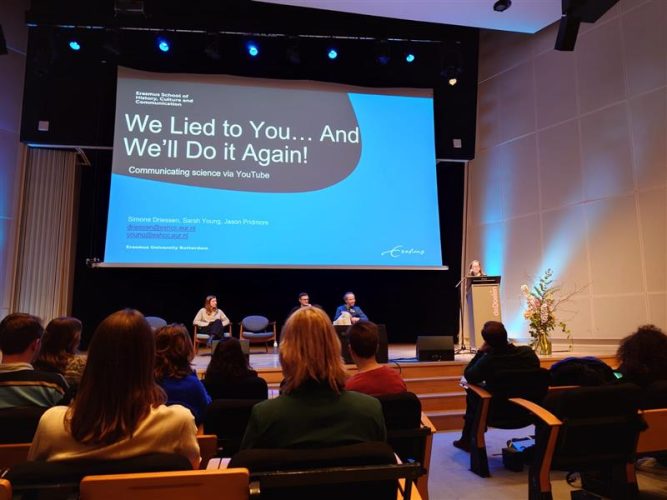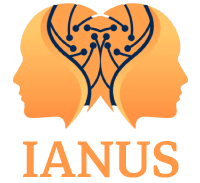In today’s rapidly changing world, the role of science communication has become increasingly vital. From navigating crises to addressing misinformation and embracing radical technological advancements like AI, researchers are tasked with the responsibility of engaging with the public in meaningful and impactful ways.
At the recent Etmaal (24 hours of Communication Science) conference hosted byNeFCA- and Erasmus University Rotterdam (EUR), Simone Driessen, Charlotte Bruns, and Jason Pridmore from IANUS partner EUR organized a panel comprising four thought-provoking presentations discussing contemporary science communication and public engagement.
Charlotte Bruns reflected on the meanings of sustainability in participatory methods. The presentation examined how sustainability in relation to participation in the research process can be interpreted as the sharing of benefits, responsibility, and ownership on the one hand and as long-term impact and relationships with stakeholders on the other. Simone Driessen presented the long-tail effect of online science communication. This presentation focussed on an analysis of the candid approach of the creative science communication agency Kurzgesagt. By acknowledging past oversimplifications, Kurzgesagt’s video sparked a meaningful conversation, highlighting the power of transparency and responsible digital communication to foster trust in science.
The panel discussion underscored the complexities of communicating science in a rapidly evolving landscape and in a society with various needs and concerns. The presentations emphasized the importance of fostering inclusive dialogues, embracing activism when necessary, and reimagining traditional communication models to meet the needs of diverse audiences.

